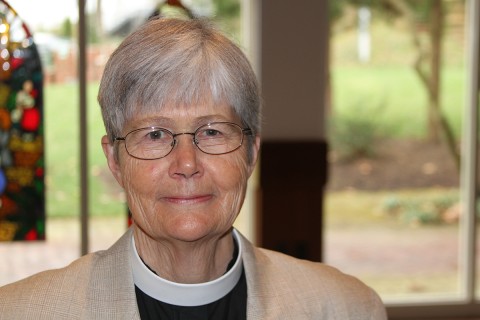How Katherine Sonderegger finds delight in a humble God
Theology as a love letter to God

Friends and former students of theologian Katherine Sonderegger combine affectionate diminutives and terms of great forcefulness when describing her. Erika Takacs calls her former teacher at Virginia Theological Seminary “a perfectly darling little leprechaun.” Fleming Rutledge, a fellow Episcopal priest, says Sonderegger is “almost like a nun in her total devotion to prayer and study,” with “the mind of a steel trap, but the manner of a somewhat shy, retiring, grandmotherly type.”
Former student Benson Shelton describes her as a “Yoda figure,” a professor who would turn up late to class because she’d stopped at a petting zoo or saw a perfect flowering bush. Yet Shelton also remembers how Sonderegger eviscerated a visiting theologian with whom she disagreed: “She might as well have cut his legs off and handed them to him.” Rutledge says she is not sure how to reconcile the darling saintliness and the daring, merciless mind: “She is a curious person.”
Margaret Adams Parker, an artist who collaborated with Sonderegger on the just published book Praying the Stations of the Cross, reconciles these disparate qualities by citing an observation by another former student, who called Sonderegger’s systematic theology “a love letter to God.” Sonderegger is tender about her subject—God—and fiercely protective when God is poorly described.




